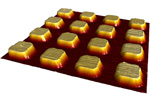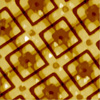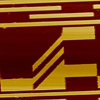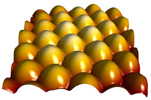400-6699-117转1000
咨询列表
北京欧兰科技发展有限公司
您好,欢迎您查看分析测试百科网,请问有什么帮助您的?











诚信认证:
工商注册信息已核实! 扫一扫即可访问手机版展台
扫一扫即可访问手机版展台
| 参考报价: | 面议 | 型号: | MadPLL® |
| 品牌: | MCL | 产地: | 美国 |
| 关注度: | 946 | 信息完整度: | |
| 样本: | 典型用户: | 暂无 |
| 样品台移动范围 | 100微米 | 样品尺寸 | 直径小于15毫米 |
| 定位检测噪声 | 0.15nm |
400-6699-117转1000
Instant AFM and nanoprobe instrumentation - just add science! View our AFM Video Tutorial. |






| Please click on a heading to view a topic. Click the heading a second time to collapse the topic. |
MadPLL® is a powerful instrument package that allows the user to create an inexpensive, high resolution resonant scanning probe microscope using Mad City Labs nanopositioning systems. In short, MadPLL® can be used to create an “instant” closed loop AFM or NSOM at a fraction of the cost of commercial systems. MadPLL® is suitable for nanoscale characterization and nanoscale fabrication applications such as optical antennas, nano-optics, semiconductors, data storage, and more. |
MadPLL® is an integrated solution that includes the digital phase lock loop (PLL) controller, software, sensor amplifier board and resonant probe mounting board. Simply add your Akiyama probe or tuning fork to the probe board to create a powerful force sensor for scanning probe measurements.
|
MadPLL® software simplifies the control of your scanning probe microscope. All of the functions of MadPLL® are fully automated but accessible via individual software control. Among the software features are automated setup, configuration control, auto-Q calculation and automatic parasitic capacitance compensation (PCC) control. These included features are designed to simplify setup and accelerate the data acquisition process. MadPLL® software integrates seamlessly with Mad City Labs' AFMView™ software. AFMView™ software is part of our complete SPM development system. |
Instant AFM - just add science!
|
Seeing is Believing!
|
Lock-In AmplifierPhase Shifter0° to 360°Demodulation Bandwidth3 kHz |
Related Products |
MCL MadPLL®原子力显微镜控制器信息由北京欧兰科技发展有限公司为您提供,如您想了解更多关于MCL MadPLL®原子力显微镜控制器报价、型号、参数等信息,欢迎来电或留言咨询。
注:该产品未在中华人民共和国食品药品监督管理部门申请医疗器械注册和备案,不可用于临床诊断或治疗等相关用途

